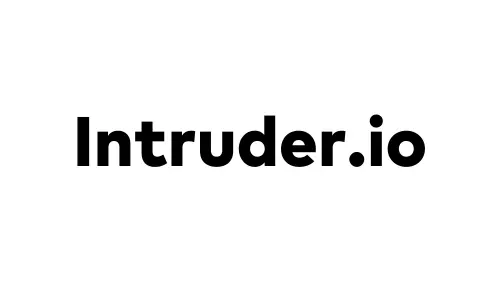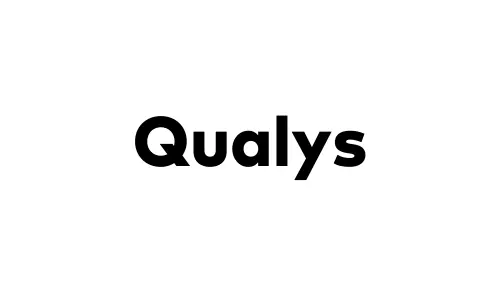Cloud penetration testing refers to the automated or manual exploitation of vulnerabilities identified through vulnerability scans. This allows cloud providers and customers to remain security conscious and understand the extent do damage that could be inflicted by a data breach or hack.
This article will discuss in detail the 14 best cloud penetration testing tools as well as explain in detail the benefits of opting to do a cloud pentest. The article will also shed light on the factors to keep in mind while choosing the right cloud penetration testing tool for your needs. Lastly, the shared responsibility model opted for by many cloud platforms will be elucidated in length.
What Are The Best Cloud Penetration Testing Tools?
Cloud penetration testing tools allow for the automated exploitation of identified vulnerabilities within the cloud security system. The below-mentioned cloud penetration testing tools are the best in the arena to keep your cloud platform safe and sound from malicious attacks.
These tools, their services, and their features will be explained in the coming section along with the pros and cons of each tool.
Cloud Pentesting Tools: Comparison Table
Factors In Choosing The Right Cloud Pentesting Tool
Cloud security companies are aplenty, thus making the decision of choosing the right third party testing tool for pentests can be difficult. Here are some factors to keep in mind and why you must do so:
- Experience and Reputation: This indicates how well the company’s services have been received and reviewed by its customers.
- Additional Features: Features like scans behind logins, and business logic error detection are not offered by every company but be a service you specifically require.
- Tailored Requirements: cloud pentest companies should be able to tailor the pentest according to your organizational demands and its assets.
- Compliance Checks: What are the compliances that need to be achieved and maintained by your company and whether the pentest tool scans for them?
- Pricing and Scalability: Are the pricings offered affordable and within budget? Does it offer the option to scale up its services based on your growing demands?
These factors will be explained in detail further down below.
14 Best Cloud Penetration Testing Tools: Features, Pros, And Cons
1. Astra Pentest
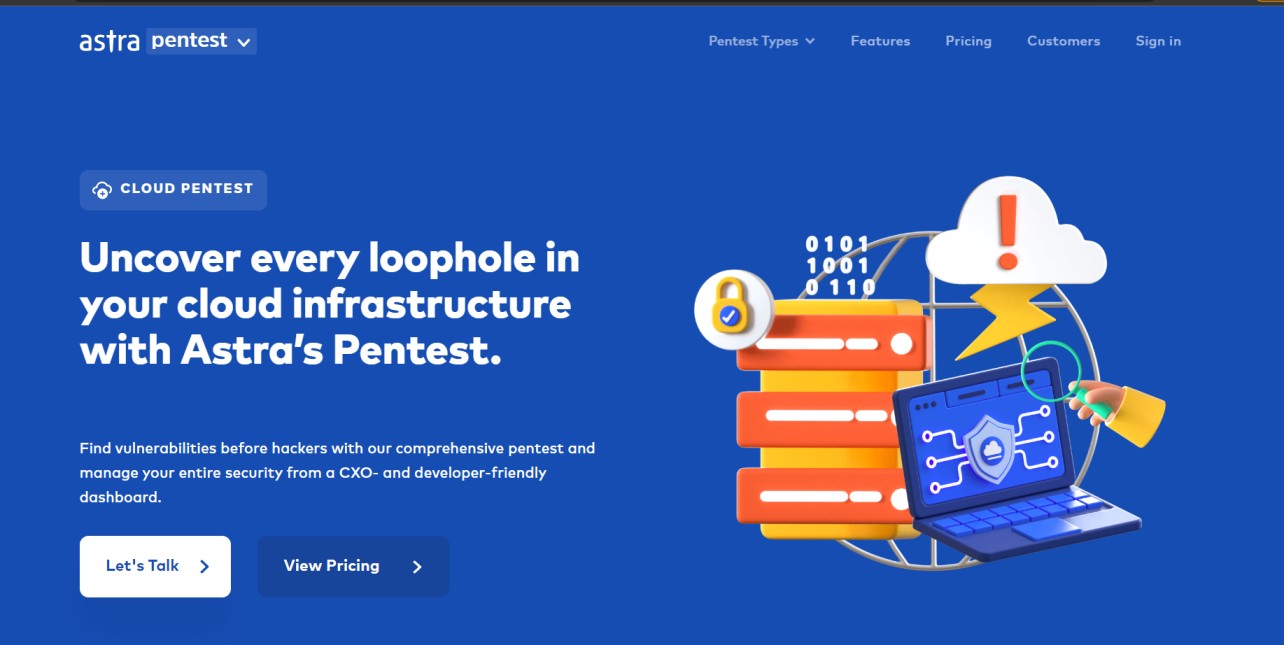
Astra Pentest is a leading provider of continuous cloud pentesting services. It has both manual and automated pentesting options in which more than 8000 tests are carried out to find any vulnerabilities that plague your system.
Astra Pentest Services
Astra’s Pentest services are applicable for Azure, GCP, and AWS and aid in cloud vulnerability management. This tool ensures a seamless penetration testing experience with zero false positive assurance as results are double-checked by expert pentesters.
Also Read: Continuous Penetration Testing: The Best Tool You’ll Find | 5 Best Cloud Security Companies: Features Offered And Factors To Consider
Intuitive Dashboard And Detailed Reports
This tool boasts an extremely user-friendly easy to navigate interface that displays the vulnerabilities found in real-time. Once the pentest is completed a report is generated that lists and explains all the vulnerabilities found with their CVSS scores and steps for remediation.
Compliance Specific Scans
Helps achieve and maintain compliance with GDPR, ISO 27001, SOC2, HIPAA, and PCI-DSS. It does this through compliance-specific scans with a dedicated dashboard that displays any areas of non-compliance found.
Pros
- Carries out scans-behind-logins, and detects business logic errors.
- Has a comprehensive vulnerability scanner with an option to rescan once vulnerabilities are fixed.
- Provides gap analysis for companies to find out the gaps in their security measures.
- All-around customer care is provided and queries are answered via email or through calls if necessary.
- Astra Pentest Certificate provided upon remediation of found vulnerabilities.
- CI/CD integration is possible allowing the move from DevOps to DevSecOps.
Cons
- Does not provide a free trial.
- Has more scope for integrations.
Also Read: 7 Best API Penetration Testing Tools And Everything Related
2. Intruder
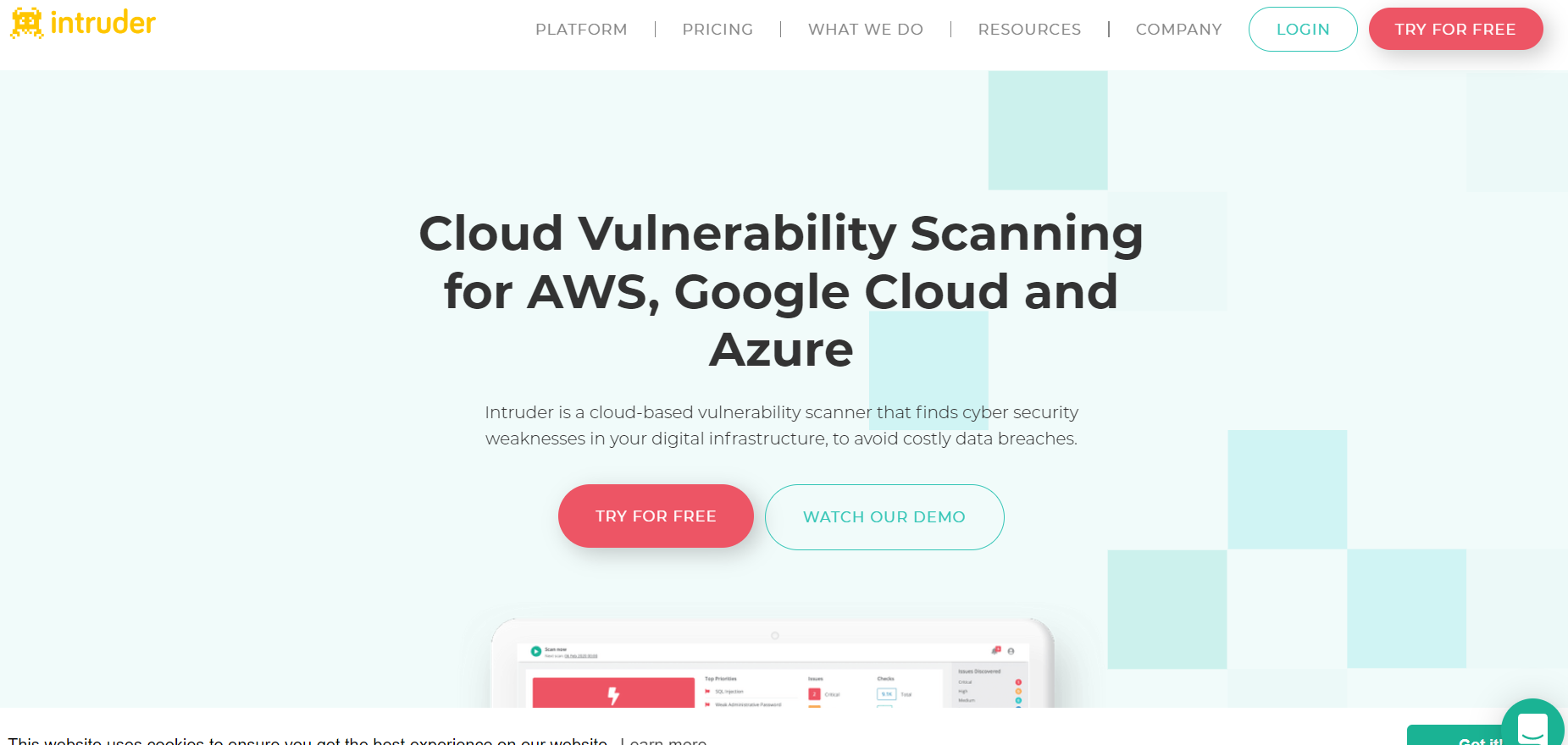
Intruder is a well-known cloud security testing solution that is available for Azure, GCP, and AWS. It conducts continuous scans that are extremely exhaustive and capable of finding vulnerabilities.
It helps organizations monitor their attack surfaces for any changes or weaknesses that might leave them exposed on the web. It helps organizations take action on vulnerabilities based on their severity rating.
Pros
- Helps with cloud vulnerability management in Azure, GCP and AWS.
- Provides real-time intrude alerts.
Cons
- Reports can be more detailed.
- Integrations could be expanded.
3. Nessus
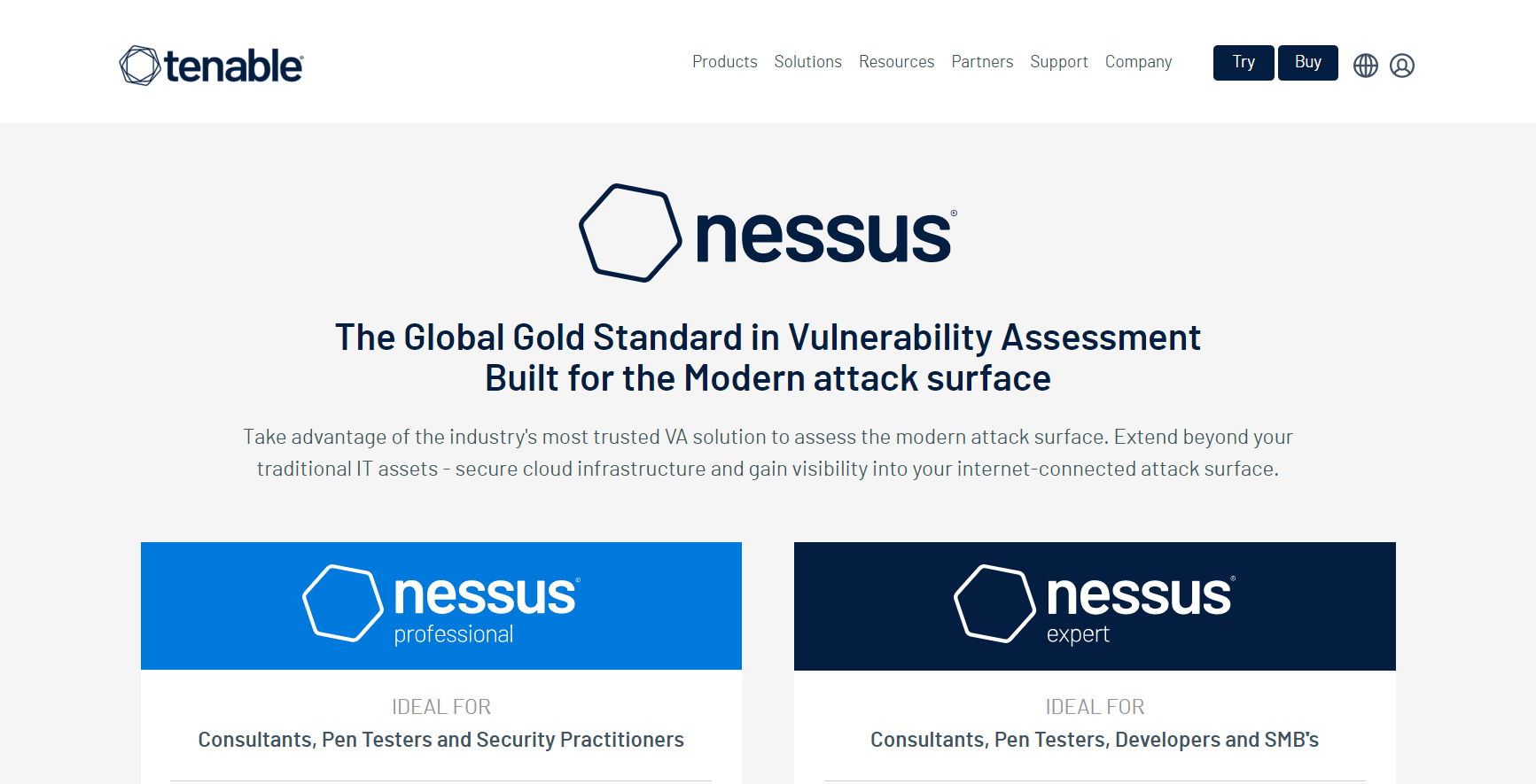
Nessus is a cloud-based security and security testing solution that helps organizations identify vulnerabilities within their security systems.
This vulnerability assessment tool provides point-in-time analysis’ that makes detection and remediation much easier and quicker.
Pros
- Provides real-time alerts and notifications on the detection of a new vulnerability.
- Vulnerability scans are highly configurable based on the needs of the target.
- Helps maintain PCI compliance.
Cons
- Too many options with very minute differences make it difficult to choose based on needs.
- Time-taking scans.
- Is expensive when compared to other options.
4. Scout Suite
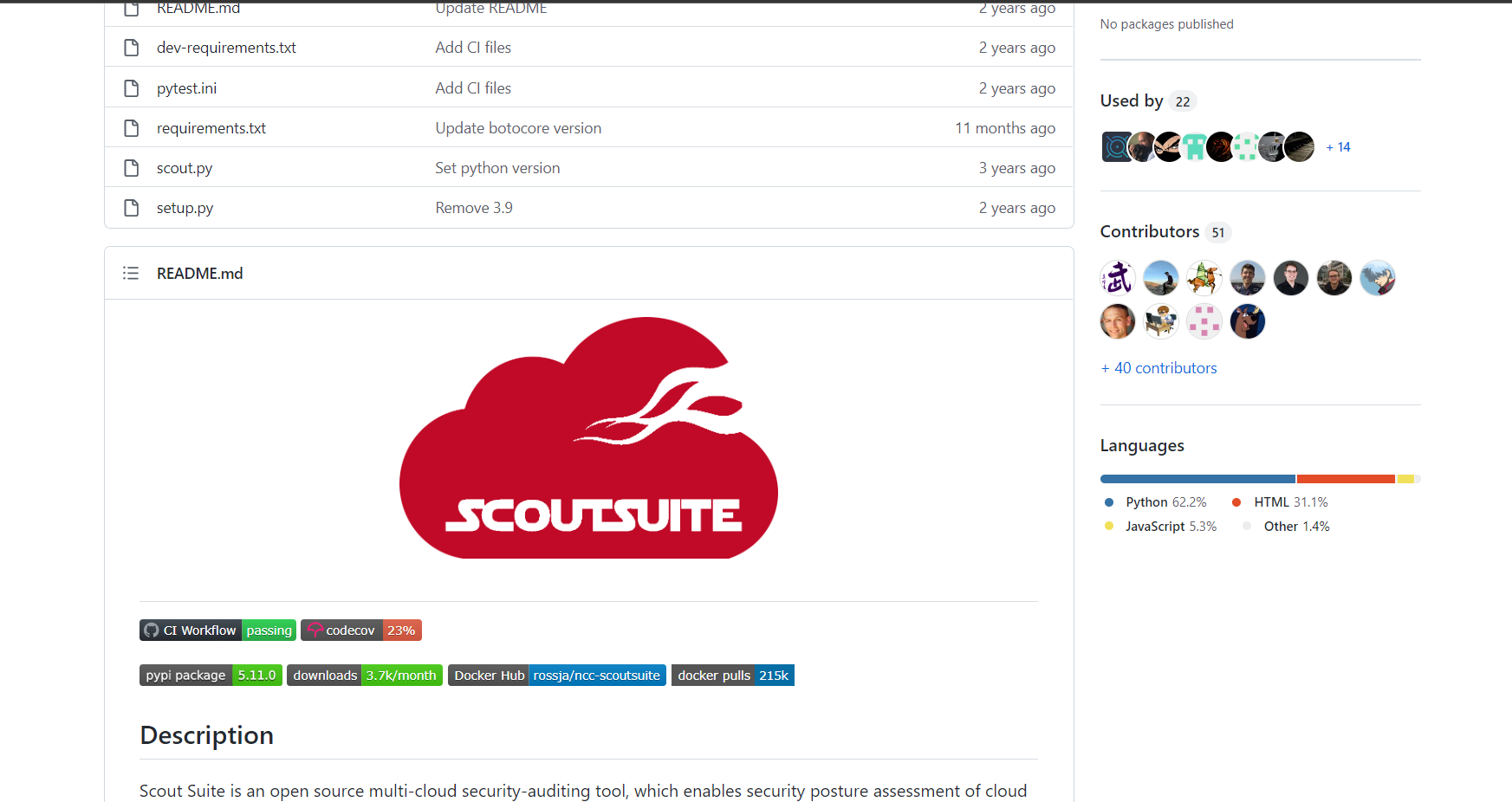
This is an open-source cloud penetration testing tool capable of conducting security test services on cloud platforms.
Pros
- Provides free trials.
- Easy to use interface.
- Provides a free version with good features for cloud penetration testing.
Cons
- The paid version has more specifications.
- Services can be a bit slow.
Also Read: API Penetration Testing: What You Need to Know
5. Pacu
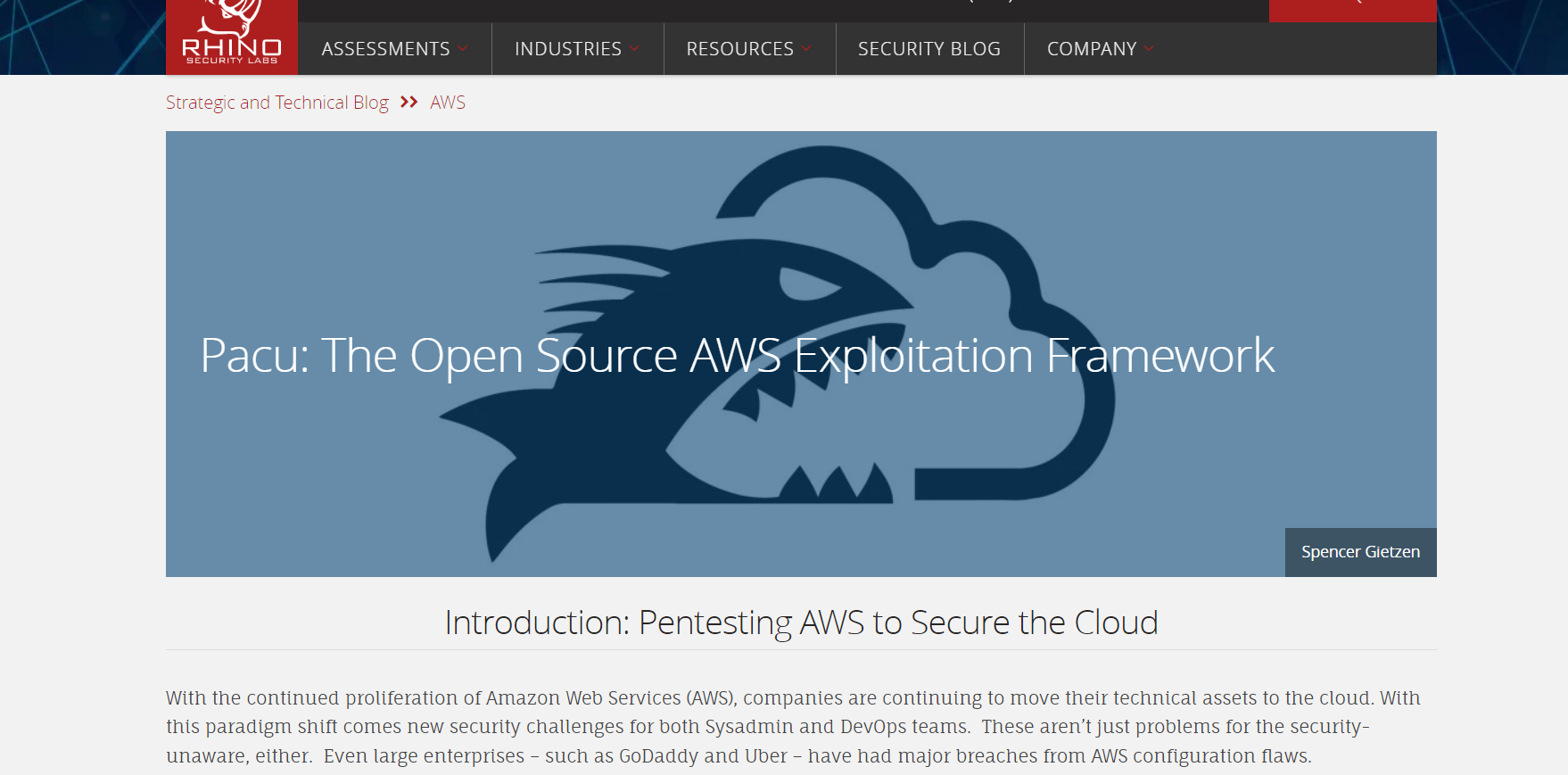
Pacu is an open-source tool available freely on GitHub. It automated vulnerability detection in the AWS cloud platform.
Pros
- Capable of detecting AWS vulnerabilities
- Helps in quick scanning of AWS cloud environment for user permissions.
Cons
- Does not offer many features as its commercial counterparts.
6. Nmap

Nmap is an open-source vulnerability scanner that helps with cloud network discovery, management, and monitoring. It is designed to scan large cloud networks, however, it also works fine against singlet networks.
Pros
- Shows open ports, running serves, and other critical facets of a network
- Freely available.
- Usable for large and small networks alike
Cons
- The user interface can be improved.
- Might show different results each time.
7. AWS Inspector
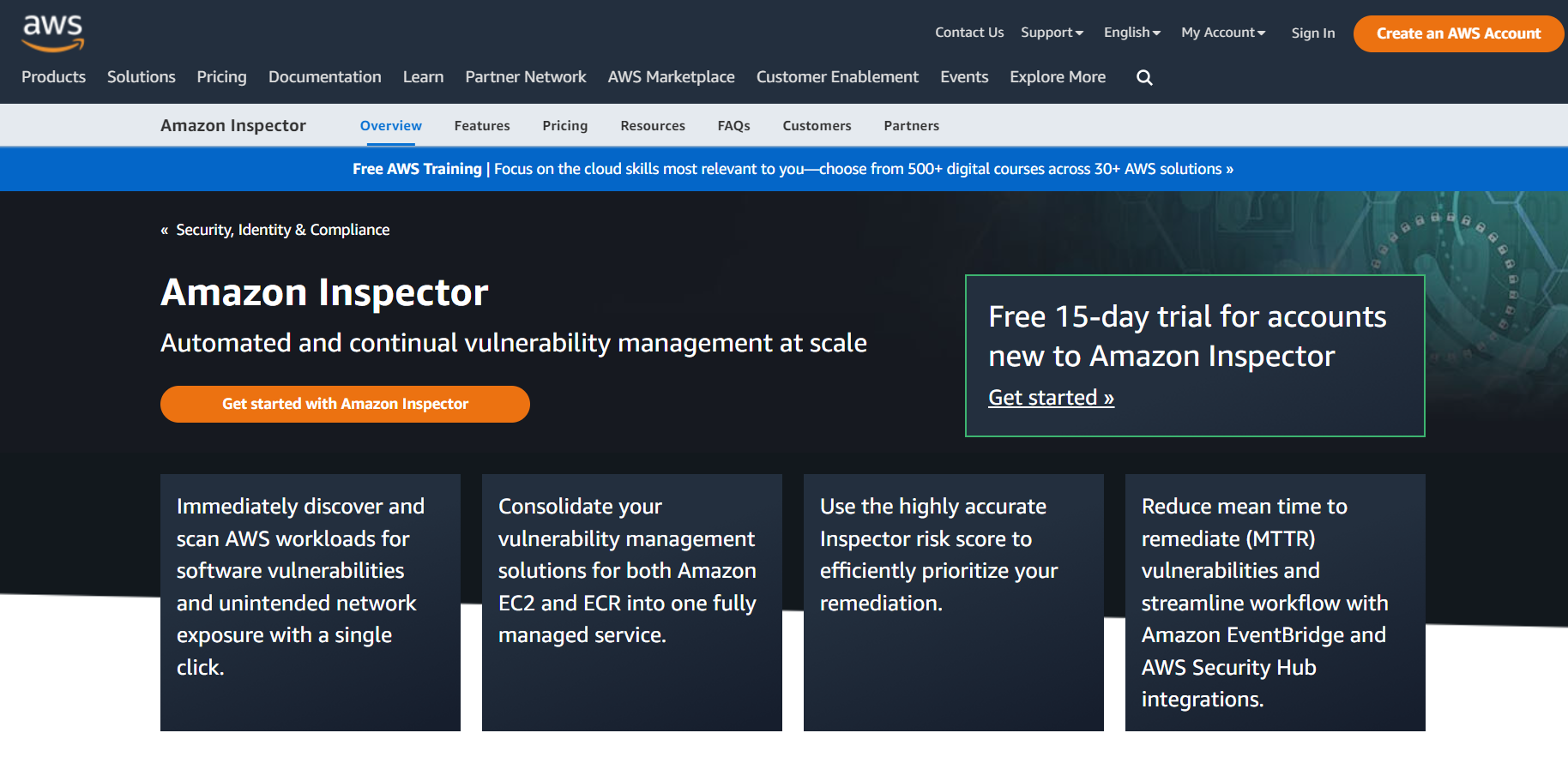
This automated vulnerability management service helps by performing continuous scans of the automatically detected AWS workloads for vulnerabilities and unintentional exposures. After a few easy steps to enable its services, AWS Inspector can be used across all your AWS accounts.
Pros
- Discovers EC2 instances and images.
- Assess the plastic container registry for flaws and areas of exposure.
- Contextualized risk scores
Cons
- Does not provide a classification of individual findings.
- Billing can be a bit tricky
8. CloudBrute
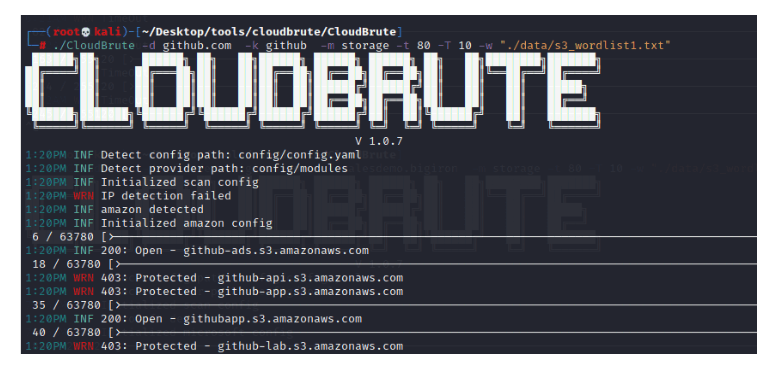
CloudBrute helps you find key elements like open buckets, apps, and data by performing brute-force attacks.
Pros
- Works on multiple service providers like Amazon, Windows, and more.
- Brute force attack based on a pre-defined word list.
- Black-box cloud penetration tests were provided.
Cons
- Not as extensive as commercial counterparts.
9. MicroBurst
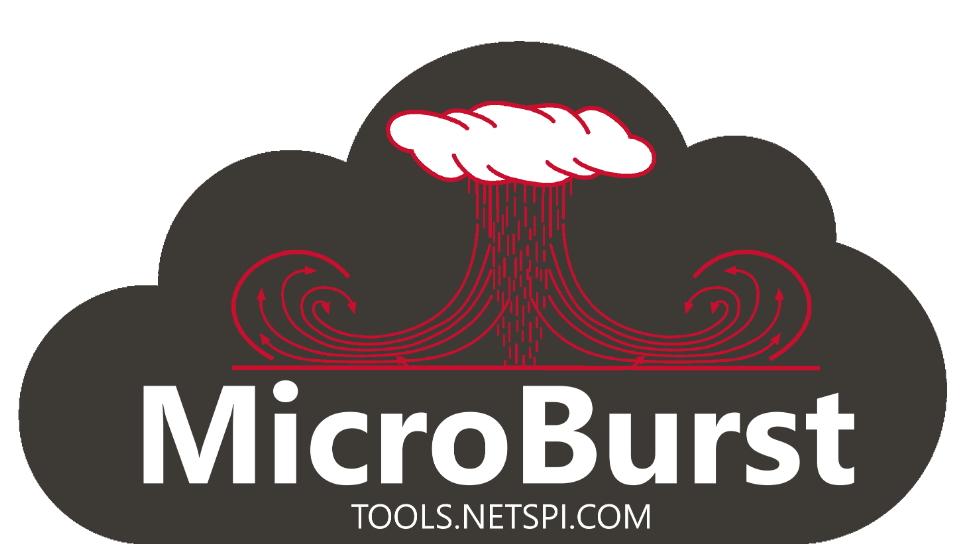
This freely available tool kit was created by Karl Fosaaen and can be used to carry out cloud-based penetration tests for the Azure cloud platform.
Pros
- Open-source penetration testing tool.
- Offers Azure Services discovery and weak configuration auditing.
- Post-exploitation actions like credential dumping.
Cons
- Does not offer many features like commercial tools.
10. SkyArk
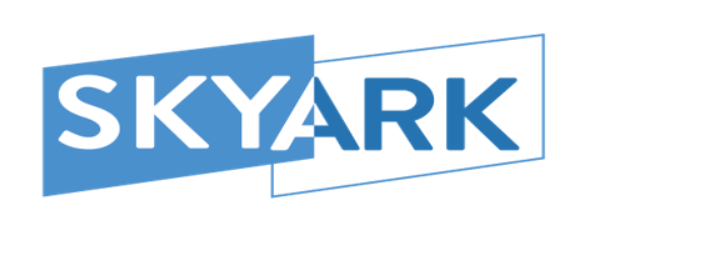
This tool is available for Azure and AWS and is useful for identifying additional attack surfaces.
Pros
- Detects the presence of shadow cloud admins.
- Helps in assessing entities in AWS and Azure.
Cons
- Not available for the Google cloud platform.
11. BurpSuite
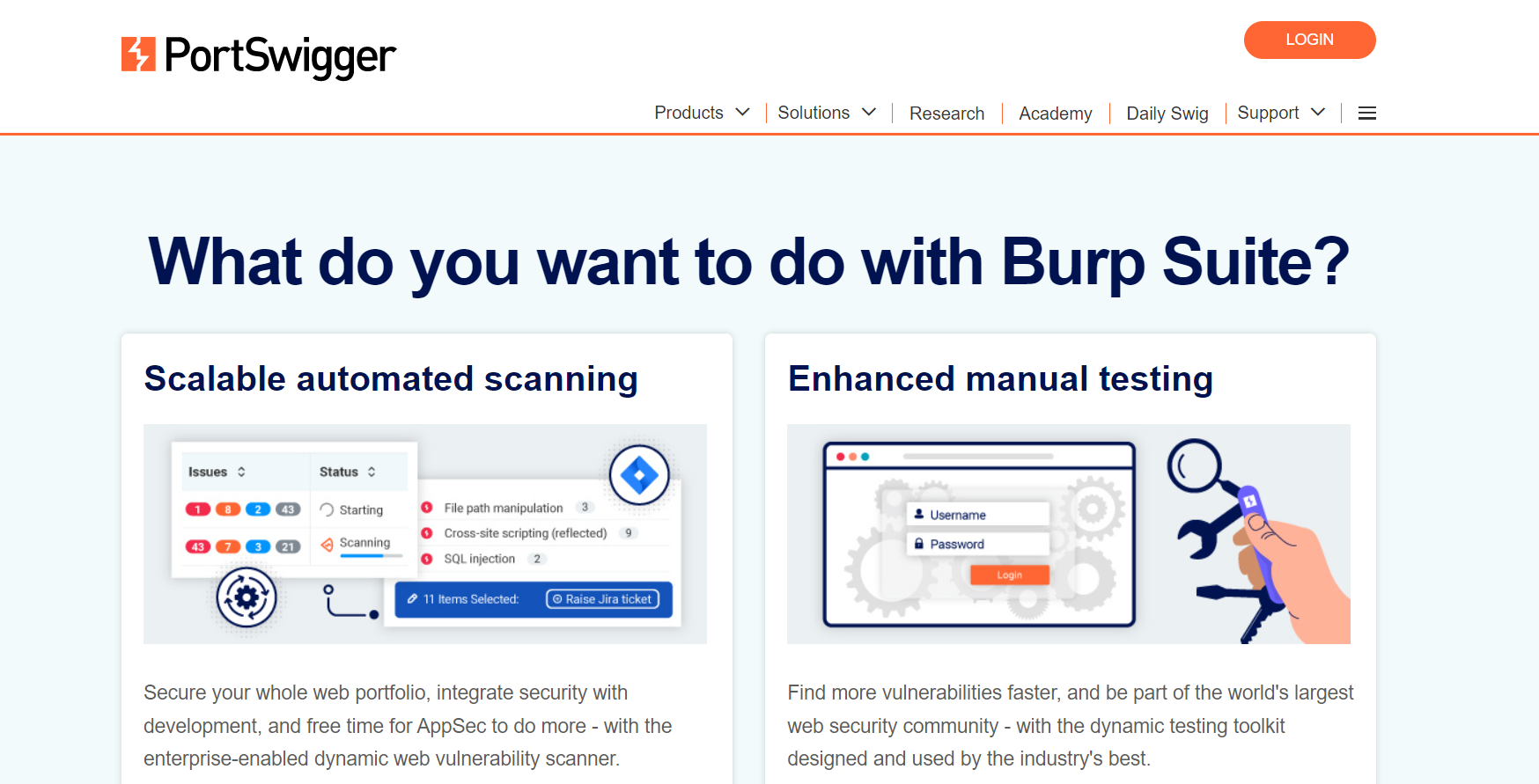
BurpSuite is a constantly evolving vulnerability scanning tool that provides integrations for easy ticket generation. Now, it also provides scope for testing out cloud environments and testing for misconfigurations in S3 buckets.
Pros
- Provides advanced automated pentesting services.
- Provides step-by-step advice for every vulnerability found.
- Can crawl through complex targets with ease based on URLs and content.
Cons
- Advanced solutions are commercialized and can be expensive.
- Does not provide expert customer service and assistance.
12. Qualys
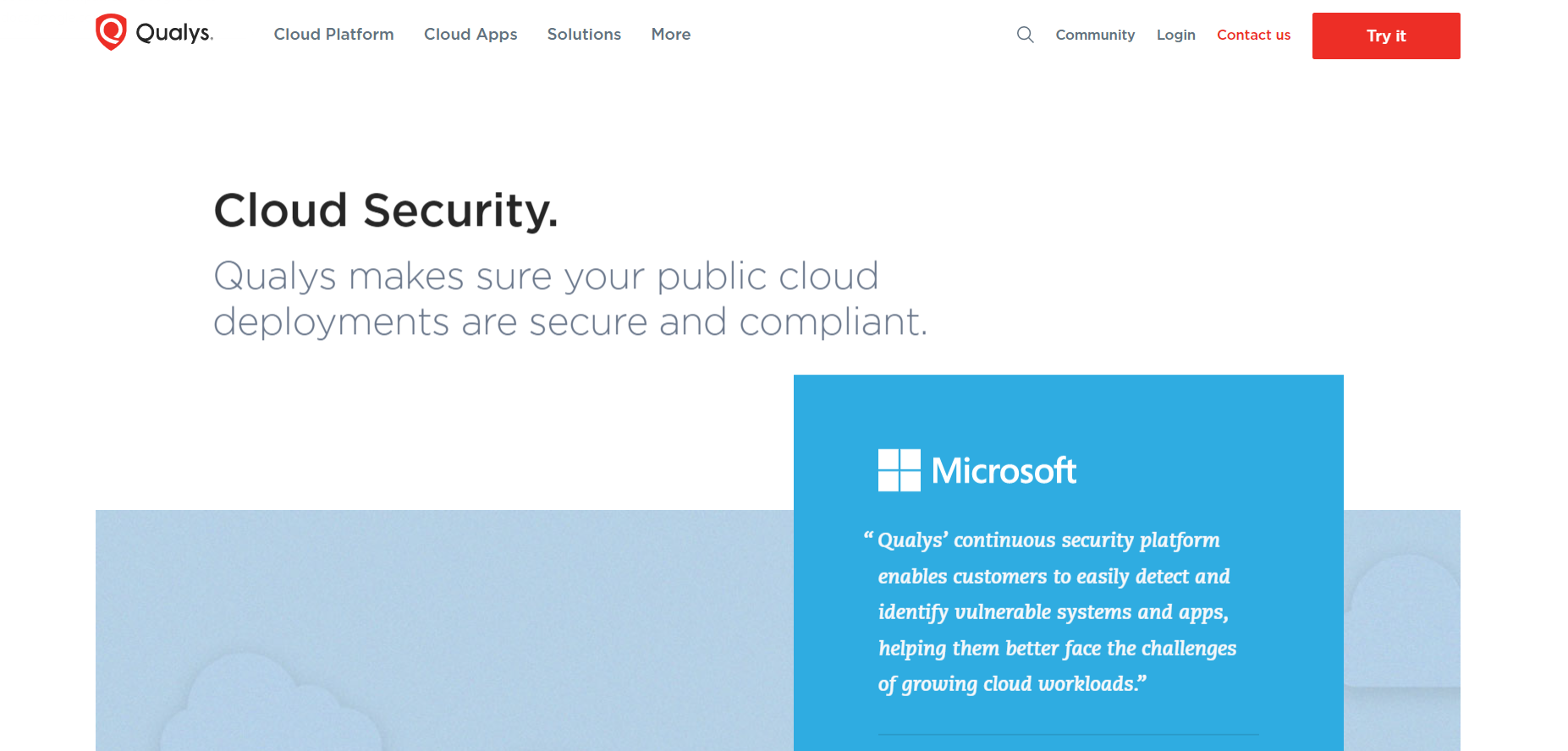
Qualys provides its cloud customers with continuous monitoring, vulnerability management, compliance solutions, and web application firewalls. These services make Qualys a top cloud security solution contender.
Pros
- Well-designed and easy-to-navigate user interface.
- Constant updates ensure the current security measures for the cloud environment.
Cons
- Limited scheduling options.
- Scans are not applicable to all applications.
13. Sophos

Established in 1985 Sophos Cloud offers simplified enterprise-level solutions for cloud security including 24/7 cloud threat detection and response, native protection, and security automation for DevOps.
Pros
- Available for AWS, GCP, and Azure.
- Helps with security automation through DAST, SAST, and SCA code analysis.
- Intuitive user-friendly dashboard.
Cons
- It can be expensive.
- Difficult to set up.
- Customer support could be better.
14. Guidepoint Security
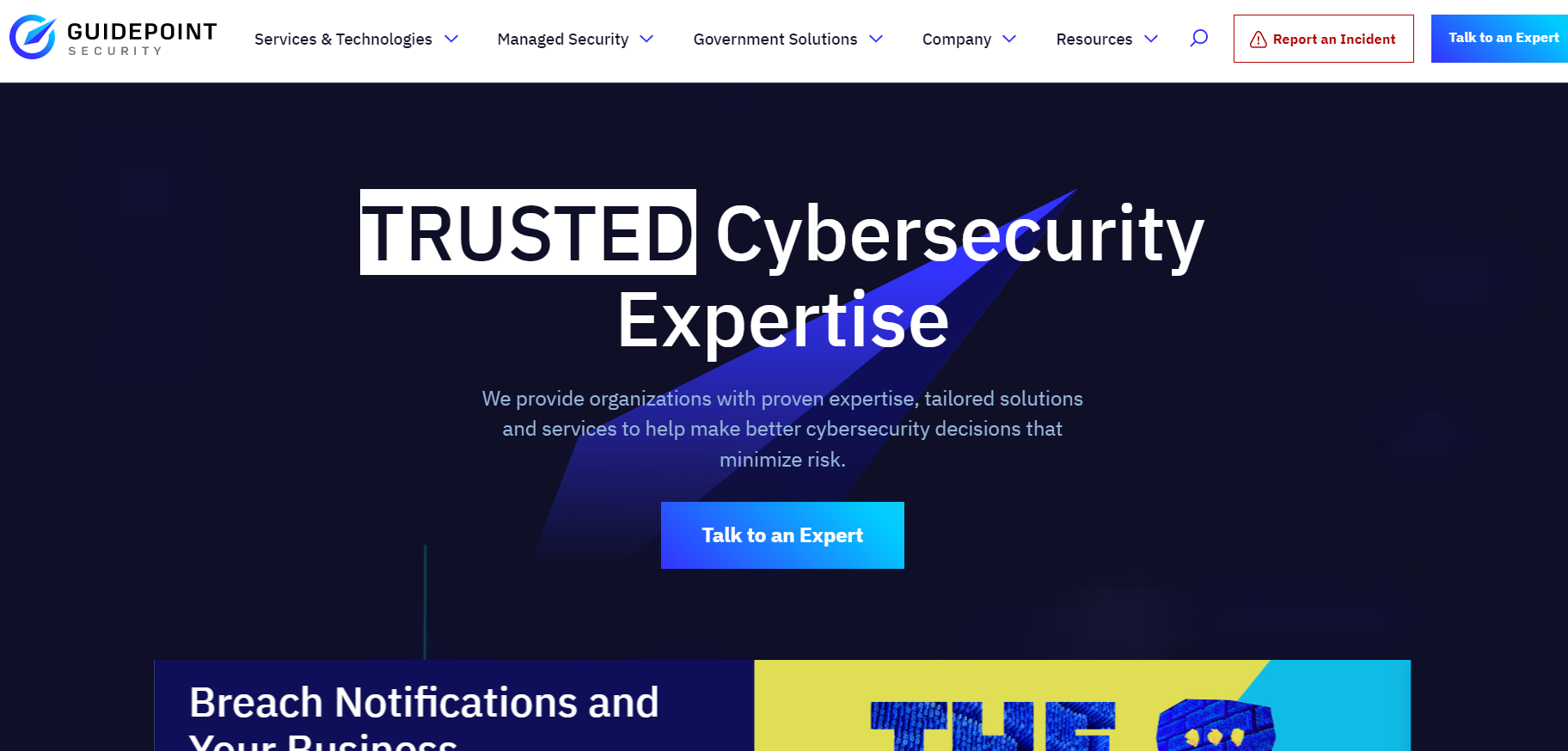
Guidepoint security offers detailed cloud security assessments that assess security strategies, migration readiness, and cloud health checks to determine any issues.
Pros
- Provides customized innovative solutions
- Examines cloud environment against standard frameworks.
Cons
- It can be more expensive than other available options
- Could have a better user interface.
Read more on AWS Cloud Security | Top 5 Software Security Testing Tools
Why Astra is the best in pentesting?
- We’re the only company that combines automated & manual pentest to create a one-of-a-kind pentest platform
- Vetted scans ensure zero false positives
- Our intelligent vulnerability scanner emulates hacker behavior & evolves with every pentest
- Astra’s scanner helps you shift left by integrating with your CI/CD
- Our platform helps you uncover, manage & fix vulnerabilities in one place
- Trusted by the brands you trust like Agora, Spicejet, Muthoot, Dream11, etc.

Features Of Good Cloud Penetration Testing Tools
1. Zero False Positives
The company that provides cloud pentesting should provide a zero false positive assurance for vulnerability detection. This should be done with the help of expert pentesters who can double-check the results of an automated vulnerability scan to ensure that every vulnerability found is legitimate.
2. CI/CD Integrations
Ensure that the cloud penetration testing tools you have narrowed down can be integrated into your organization’s CI/CD pipeline. Such integration allows your organization to shift from a DevOps model to a DevSecOps model, thus giving more priority to security.
It should offer integrations with applications like Slack, Jira, GitHub, and GitLab to name a few important project-building applications that can use pentesting tool integration into the development phase.
3. Comprehensive Vulnerability Scanner
A vulnerability scanner with the capacity to detect business logic errors and conduct scan-behinds logins is comprehensive and standard for a good cloud penetration testing tool.
Such vulnerability scanners should be capable of detecting all known vulnerabilities based on intel, CVEs, and vulnerabilities mentioned in other standards like OWASP, NIST, and SANs.
4. Compliance-Specific Scans
The cloud penetration testing tool should also provide compliance-specific scans so that the cloud platform and the organizations that store their confidential data on it can stay compliant with various industry-specific regulatory standards for data protection.
Compliance-specific scans help find areas of non-compliance if any for standards like GDPR, SOC2, ISO 27001, HIPAA, and PCI-DSS. These flaws should be listed in a special compliance report which is helpful for quick remediation thus helping avoid penalties.
5. Detailed Reports
The hallmark of good cloud penetration testing tools lies in the detail-oriented report generated once the penetration test is complete. The report should explain in detail the scope of testing, the assets scanned, the vulnerabilities found and exploited as well as the methods used to carry out the attacks.
Once these factors are mentioned and the vulnerabilities are listed based on their severity of risk or CVSS score, exhaustive remediation measures must be mentioned so that the organizations can take quick actions for remediation based on that.
6. Pentest Certificate
The pentesting company should provide a penetration testing certificate upon the completion of a penetration test and the successful remediation of the flaws found. This can be double-checked by conducting a re-scan.
The provision of a publicly verifiable pentest certificate can be an extremely useful commodity for the customers since it can increase their reliability and trustworthiness. This can boost sales and act as a hook for potential cloud customers as well.
7. Customer Support
A good penetration testing company provides 24*7 customer service through calls, and emails to clear any queries that could arise during the penetration testing process. Customer support should be done by knowledgeable experts to ensure a seamless query clearance.
Benefits of Cloud Penetration Testing
Cloud penetration testing is not only beneficial to cloud service providers but also to organizations that store their sensitive data and applications in the cloud. Cloud penetration testing helps maintain the shared responsibility model placed by most cloud providers between themselves and the customers through:
1. Find Vulnerabilities
Identification of any vulnerabilities by carrying out cloud penetration tests ensures their quick fixing. The comprehensive scanners can pick up even the most minute vulnerabilities. This is crucial as it helps in the immediate remediation before the vulnerability is exploited by hackers.
2. Enhance Security
Another benefit of cloud penetration testing is that it helps with the constant updating of security measures. Not only this, it helps make the existing security measures better if any security gaps are found in them.
Also Read: API Penetration Testing: What You Need to Know
3. Increased Reliability
Carrying out periodic cloud pentests can help increase the reliability and trustworthiness attributed to the cloud providers. This can bring in more clients owing to the security-conscious nature of the cloud provider while keeping the existing client happy with the level of protection available for the data stored by them.
4. Maintain Compliance
Carrying out cloud pentests not only helps find vulnerabilities but also areas of non-compliance with various regulatory standards. Thus these areas that are identified can be remedied to meet the compliance requirements and avoid fines for non-compliance.
Also Read: Penetration testing compliance: An easy to follow guide
Factors In Choosing A Good Cloud Test Tool?
1. Experience
Consider the years of experience of the penetration testing companies you have shortlisted for your needs. This can help you understand the reliability and reputation of the companies and the penetration testing tools you’re considering employing.
2. Features Offered
Consider the features of the penetration testing tools before purchasing them as this is largely based on the needs of your company. It is important because every penetration testing tool will have varied specifications and so they need to be compared to choose the best among the options.
3. Requirements
What are the requirements your company needs to fulfill from conducting this cloud penetration test? From compliances to just periodic penetration tests, ensure that you and the pentesting company you choose are clearly aware of your needs as this can change and affect the scope of testing and expense as well.
4. Compliance
The company should compliance specific scans for varied compliance standards like SOC2, PCI-DSS, HIPAA, GDPR, ISO 27001, and others for your to choose from based on your compliance requirements.
5. Pricing
Get penetration testing price quotes from various companies and compare them based on the features and the packages offered. This can help you stay well within the budget set by your company and yet get the most out of your cloud penetration test.
6. Scalability
Ensure that the cloud penetration testing tools short-listed by you have the resources and capacity to be scaled up or down if required based on your company’s growing needs, size, and employee strength.
The shared responsibility model is a cloud security model where both the cloud provider and customer are tasked equally with the upholding and maintenance of the cloud security in which their data and applications are stored.
With this model, if any security breach or hack occurs it becomes easy to identify who is liable for the damages as such a breach can only occur due to neglect in security testing from either party.
This is available for Azure and AWS where the cloud providers take care of the holistic security of the cloud while their customers are charged with maintaining the security within it.
The type of shared responsibility model applicable changes based on the type of cloud service model opted for. Generally, the customer’s share of the responsibility increases from SaaS to PaaS and IaaS.
Conclusion
Cloud computing is taking over the business by storm due to its ease of use and storage. It, therefore, becomes the responsibility of the growing number of users and providers to ensure that their customers’ data is always safe as even the cloud is prone to get hacked.
This article has mentioned the top 14 cloud penetration testing tools, their features, pros, and cons in detail for you to peruse through. Along with this, the features of a good cloud security company and the various associated factors that are involved in making the right choice have also been mentioned.
So make your choice wisely today and use tools like Astra Pentest and more to keep your cloud safe and sound!
FAQs
1. What are the top three cloud platforms?
The top 3 well-known and used cloud platforms are AWS by Amazon, Azure by Microsoft, and GCP by Google.
2. Top 3 cloud penetration testing methodologies?
The top 3 cloud penetration testing methodologies are:
1. Black box: In this pentesting methodology the pentester is not aware of any target details and has to start to exploit from scratch. True hacker-style testing.
2. White box: In this type of pentesting the testing is aware of all the relevant information pertaining to the exploitation. Also known as clear-box testing.
3. Gray Box: In this type of testing details regarding the system are divulged partially.
3. What is AWS penetration testing?
This refers to the exploiting of the AWS platform service used by you to find any vulnerabilities within its security. AWS penetration testing is subject to the policies put forth by AWS.


